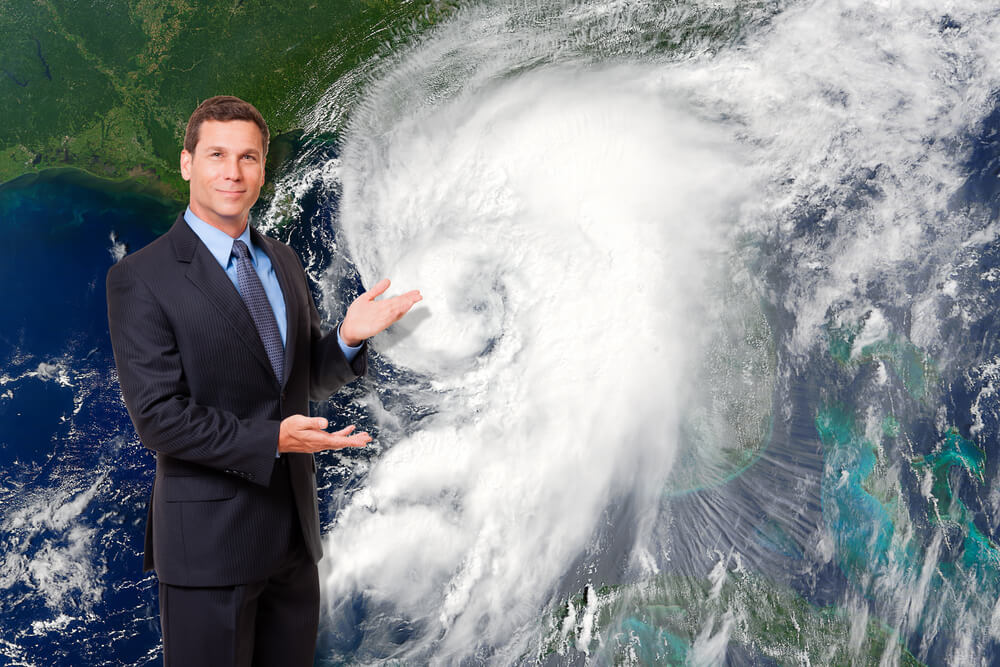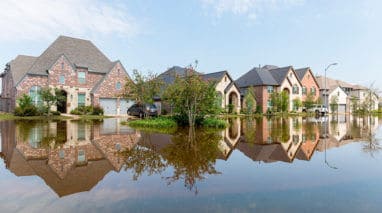Blog
Water, Water, Everywhere! What You Need To Know About Flood Zones Before Buying A House in Washington

Thinking about buying a house in the beautiful Evergreen State? With its lush forests, majestic mountains, and abundant waterways, Washington is a dream location for many. But before you dive into the real estate market, it’s crucial to understand the ins and outs of flood zones. These areas, prone to flooding, can impact everything from insurance costs to resale value. Don’t let the risk of floodwaters dampen your dreams!
In this guide, you’ll navigate the key factors to consider, how to determine a property’s inundation area (or flood possibility), the difference between buying homeowners insurance and flood insurance, and the financial implications of owning a property like this.
Navigating the Waters of Flood Zone Home Purchases
Alright, future homeowner, you’ve set your sights on the beautiful Evergreen State — Washington! Home to lush forests, majestic mountains, and, oh yes, an abundance of water. While that all sounds picturesque, it also means you’ve got to be savvy about the inundation area. Yes, those pesky areas where water loves to hang out. But don’t worry — this guide will help you paddle through those worries with ease. Buying a home in a FEMA flood zone isn’t just about finding a charming house with a view; it’s about understanding the risks and navigating the waters (pun intended) with confidence and knowledge.
Key Factors to Consider Before Buying a Flood Zone Property
First things first: location, location, location. Yes, you’ve heard it before. In reality, though, it’s more like elevation, elevation, elevation. If you’re eyeballing a house that’s a hop, skip, and jump from a river, lake, or the Puget Sound, you might want to know its inundation area status. But why, you ask? Because a house with a waterfront view might also come with an unwelcome guest — floodwater.
You’ll need to consider the elevation of the property. Is it on a hill, a valley, or smack dab in a flat area? Higher ground is your friend here. Next, think about the property’s drainage. Does it have good runoff, or does it turn into a mini pond every time it rains? And let’s not forget the weather. Washington can get pretty wet, especially in the western parts, so knowing the area’s rainfall patterns is a must. In addition to these factors, think about the infrastructure in the area. Are there levees, dams, or other control systems in place? How well-maintained are they?
The answers to these questions can significantly influence the flood risk of a property.
How to Determine a Property’s Flood Zone
So, you’ve found a house that you love. Great! Now, you may be wondering, “Is my house in a flood zone?” Understanding a property’s inundation area status is crucial because it will affect everything from flood insurance costs to resale value.
Evaluating the Flood History of Your Prospective Home
A little history lesson: downpour history, that is. Ask around — neighbors, local government offices, even the current homeowner if they’re chatty. Has the area experienced significant flooding in the past? And how often? If the house has been hosting annual pool parties that nobody invited, you might want to rethink things. Knowing the hydrological history can give you a clearer picture of the risks involved. Additionally, check for any past damage repairs on the property. Multiple repairs could indicate recurring issues.
How to Read FEMA Flood Zone Maps
Next, it’s time to get a bit technical. Enter the FEMA Flood Zone Maps. Think of these as treasure maps, but instead of gold, you’re searching for peace of mind. Head to the flood maps on FEMA’s website and type in the address of your prospective home. You’ll see a colorful map showing different inundation areas. These maps are crucial tools that show areas at varying levels of flood risk.
Here’s a quick rundown:
- Zone X: High and dry, my friend. Low risk. If your property is here, you’re in the clear.
- Zone AE: High water central. Expect a major event at least once every hundred years. Properties here require serious consideration and planning.
- Zone VE: Coastal areas with added fun from waves. High risk. These areas can be particularly hazardous and may have higher premiums and stricter building codes.
You want to look for properties in or near Zone X. If it’s in Zone AE or VE, you’ll need to prepare for extra costs and considerations. Understanding these maps can save you from a lot of potential headaches and financial strain down the line. Another great resource are these flood hazard maps on the Department of Ecology’s website.

The Difference Between Flood Insurance and Homeowners Insurance
Let’s talk coverage, because who doesn’t love insurance talk? (Spoiler: nobody.) But seriously, understanding the difference between flood and homeowners insurance is vital when considering a property in an inundation area.
Flood Insurance
This policy is like that specialized umbrella you need for a monsoon. Regular homeowners coverage won’t cut it here. It covers damages specifically from — you guessed it — flooding. This includes water damage to your house, its foundation, and any belongings inside. It’s crucial to note that policies often have a 30-day waiting period before they take effect, so you’ll want to get this sorted well before the rainy season hits.
Homeowners Insurance
A common question is this: Does homeowners insurance cover flooding? Now, homeowners protection is your regular old raincoat. It covers things like fire, theft, and some water damage (like a burst pipe), but it won’t help you if a river decides to pay you a visit. So, if you’re in an inundation area, you’ll need additional coverage.
And yes, that means more moolah out of your pocket. It’s important to budget for this additional expense and ensure you’re fully covered. Without flood protection, you could be left high and dry (or rather, low and wet) if one of these unfortunate incidents occurs.
Homeowners coverage with flood insurance, as you can now tell, is a necessary combination. Another type of “force majeure” event that isn’t covered by Washington homeowners policies is earthquakes.
Financial Implications of Flood Zone Properties
Alright, let’s talk turkey — money, that is. While the average hydrological engineer might ask questions like “What does base flood elevation mean?” you’re more concerned with the practicalities of this conundrum. Such as: Am I buying a house in a flood zone? Buying a house in a zone comes with some serious financial considerations. It’s not just about the upfront costs; you need to think about the long-term financial impact. These are important considerations to avoid common mistakes when buying homeowners insurance, such as not understanding what your policy actually covers.
Understanding the Impact on Mortgage and Home Value
First off, your mortgage. If you’re getting a loan to buy your house, the lender will likely require you to have flood insurance if the house is in a FEMA zone. This is non-negotiable. And remember, this can be pricey, especially if you’re in a high-risk area. So, that dreamy waterfront property? It might come with a less dreamy extra insurance payment. Lenders need to protect their investment and requiring flood insurance is one way they do that.
Then, there’s the home value. Homes in these zones can sometimes be cheaper to buy, but there’s a catch. They might not appreciate in value as much as homes in safer areas. Plus, if a big flood hits and the house gets damaged, the value could take a nosedive. It’s important to weigh the potential savings on the purchase price against the possible depreciation and additional costs over time.
Resale Considerations for Homes in High-Risk Areas
Finally, think about the future. One day, you might want to sell this house. If it’s in a high-risk flood zone, you’ll need to be prepared for a longer selling process and possibly lower offers. Potential buyers will have the same concerns you do, and that could mean fewer interested parties. Additionally, changes in FEMA flood maps or insurance requirements could impact your ability to sell.
But don’t let that sink your spirits! With the right precautions, buying in one of these zones can be manageable. You just need to be informed, prepared, and ready to roll with the waves — literally. Make sure you have a solid plan in place for mitigation, keep up with any necessary maintenance, and stay informed about any changes in regulations.
Top Considerations When Choosing a Flood Insurance Provider
So, there you have it! Everything you need to know about navigating the waters of flood zone home purchases in Washington. Remember, knowledge is power, and now you’re armed and ready to make a splash in the real estate market. Happy house hunting, and may your future home be high and dry!
To get started with your own homeowners insurance policy, give Vern Fonk Insurance a call today at (800) 455-8276, request a quote online, or visit your local office today!


